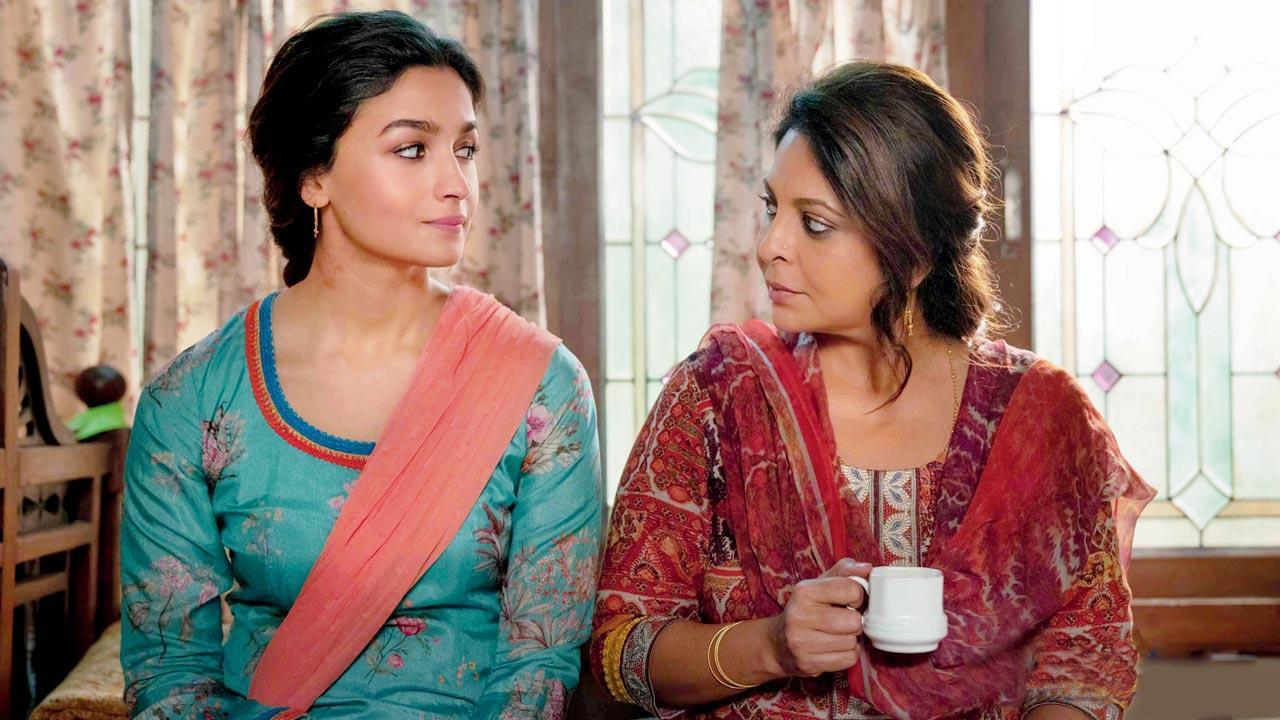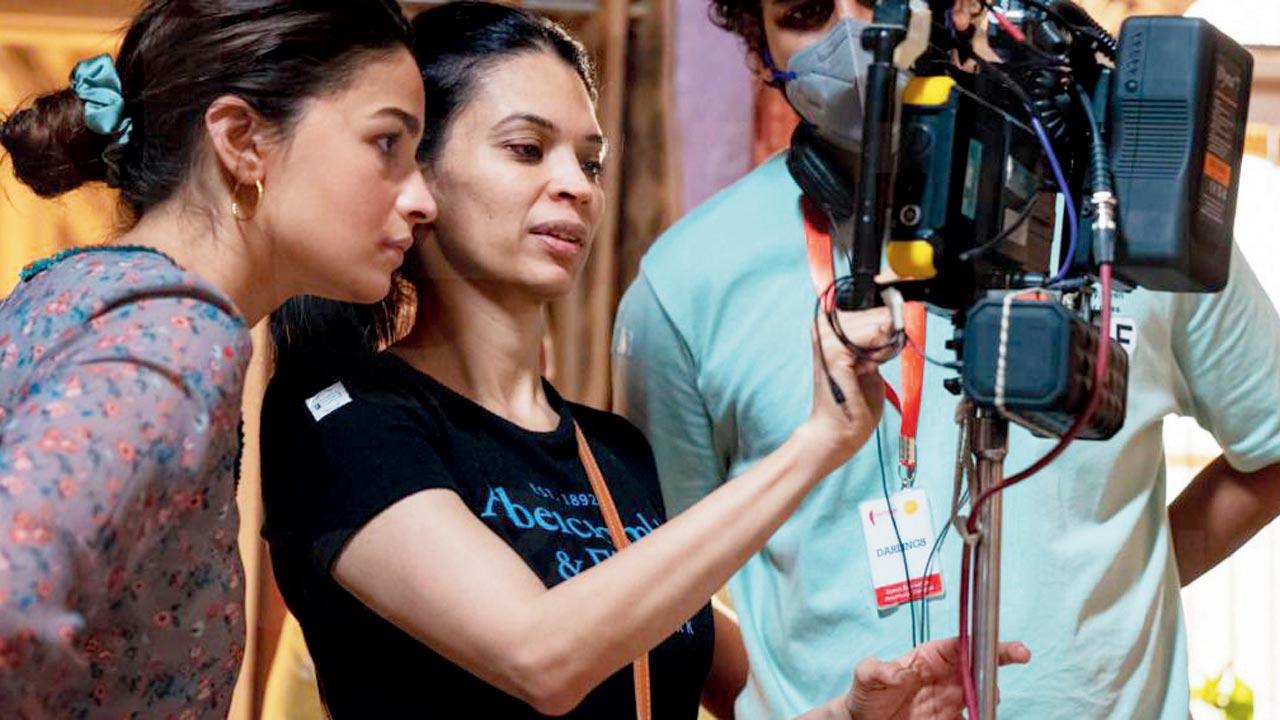As women, we are not even allowed to think bad things, let alone execute them-Jasmeet K Reen
8:41 AM
Posted by Fenil Seta

As men’s rights activists allege that Darlings promotes violence against men, director on depicting women’s inherent fear and why a dialogue is overdue
Mohar Basu (MID-DAY; August 8, 2022)
Darlings is a product of many things new — a new producer in Alia Bhatt, a new director in Jasmeet K Reen, and most importantly, a new lens through which the horrors of domestic abuse are captured. Beneath the humour, Bhatt, Shefali Shah and Vijay Varma’s dark comedy tackles the sensitive subject of domestic violence in marriages. When we connect with Reen, who has also co-written the Netflix film with Parveez Sheikh, we start our chat with how she brought authenticity to the subject at hand.
“When I wrote the story, I knew I wanted to do something different with the subject. I played with structure, and mixed a couple of genres. I stopped watching [movies]. I didn’t want this to be referenced from anything at all. This story comes from life — one has grown up seeing violence of varied forms in Indian families,” says the first-time director.
Before she told the story of Bhatt’s Badrunissa and her mother, essayed by Shah, Reen understood it was important to reflect the fear that women inherently carry. She elaborates, “We have a scene where Badru says, ‘Sab ladko ko line mein khada karke goli maar deni chahiye.’ That line comes from everyone we know who has felt helpless anger. But the character is so innocent that she gets scared when the cop calls [soon after], because as women, we are not even allowed to think bad things, let alone execute them. I wanted it to be a funny scene, but the after-feeling had to be sadness that people live in such fear.”
Reen sat on the film’s idea for a year before taking it to Sheikh. It took them two years to crack the milieu and the characters. Thus was born Badrunissa, who after years of suffering abuse at husband Hamza’s hands, makes an audacious plan with her mother to avenge it. “I wanted the characters to be simple and sweet,” says Reen.
She further explains, “Badru is the daughter of a single mom, and has never seen her father. So, when she has a husband who loves her, she wants to go all out. She believes he has only one problem — alcoholism. Badru has told herself that if she loves him, he will change. Most women operate from that romantic optimism. Alia is the kind of actor who keeps talking about her role and absorbs every word you say. In front of the camera, she gave life to the character I had in mind.”
It was critical for the writer duo to humanise Varma’s character, Hamza. Reen says Varma discussed his part with them for four months, understanding his impulses and motivations. “Hamza is essentially an entitled man who doesn’t know he is doing wrong. He feels he gives Badru freedom and that she will never leave him. His insecurity of money and status, coupled with the fact that his boss bullies him, comes out on Badru. When the character is saying sorry, he means it. My favourite scene is where he convinces her to return to him, luring her with the [promise of a] child. Men like Hamza will charm you into believing them. We wanted Vijay to bring the layers, and depict how men control women with manipulation.”
The dark comedy hasn’t gone down well with some men’s rights activists, who believe it promotes the idea of domestic violence against men. The call for boycott had started from stray groups on Twitter even before the movie was released. How does she react to it? “We are happy that people are talking about it. What is art for if not to trigger a conversation? If a conversation has begun, the film has done its job.”

Bhatt with director Reen
This entry was posted on October 4, 2009 at 12:14 pm, and is filed under
Alia Bhatt,
Darlings,
Interviews,
Jasmeet K Reen,
Jasmeet K Reen interview,
Vijay Varma
. Follow any responses to this post through RSS. You can leave a response, or trackback from your own site.
Subscribe to:
Post Comments (Atom)
Post a Comment